Avichai Kramer sits in his electric wheelchair, in the living room of his house, and writes to me on the computer.
The words accumulate and pile up letter by letter, using a unique typing technique, without the need for hand contact.
"When I went to pick up my daughter, Ella, from kindergarten today, I entered through the gate of the basketball court, which happened to be open. In the distance I heard the voice of a boy shouting excitedly: 'Dad! Dad! My dad is coming!'"
Kramer pauses writing for a moment, and after a minute continues: "I thought to myself, how I envy this father. My daughter will never be so excited about her crippled father. Then I progressed towards the garden, and what do I find out? Who shouted and got excited towards me. "
Kramer, 47, who has been bravely battling ALS for 18 years, a crippling muscular dystrophy, has not calmed down from the exciting day he experienced.
A day when his daughter Ella (6), an incredibly beautiful and smart girl, happily stormed her father's motorized chair, who had come to pick her up from kindergarten with the help of one of his close caregivers.
She soon sat down on his knees, and so they rode together on the path leading to the nearby playground.
These have a special father, and she has a big dream about him.
"I want to be a scientist when I grow up," she says in her sweet voice.
"I will make Dad a potion and I will heal him. My dream is for Dad to be healthy and get back to being the way he used to be."
She walks over to him, strokes his head and gives him a captivating hug.
His eyes sparkle with a happy response.
"I love Dad," she says.
"I know he's a very smart man, and most of all I like that he takes me in his cart to play in the park and buys me ice cream."
Ella gets off the cart and wants to play with her friends in the park.
Avichai looks at her in love from the motorized chair.
"I love her very much," he would later explain by writing on a computer at home.
"I feel a constant commitment and concern for them. Every time she enters the house, my gaze is magnetized to her. I can do nothing but look at her. She is so beautiful. In the difficult, despairing, frightening moments, I think of her, and also of Dana and Sarit - And I know I have to keep fighting. "
Kramer is one of the most well-known ALS patients in Israel, and certainly one of the oldest patients with the disease, whose life expectancy, from the moment of discovery, is only three to five years.
In the 18 years since the bad news came to him, he has always maintained inexhaustible optimism, and his story of dealing with the disease is medically astonishing - along with great inspiration.
Sarit, his wife, says that Avichai simply "decided that the disease would not defeat him, and when he decides something, nothing will help. Avichai cannot be defeated."
A special silver sticker is attached to Kramer's forehead, which is used as a reflector.
On his computer, in front of him, is a small infrared camera that picks up the sticker, and as soon as his head moves, the mouse cursor on the computer moves in that direction.
Once the head is stopped for one second on a particular signal, it is written on the computer monitor using a virtual keyboard, and a built-in narrator reads aloud what is written.
"There is no doubt that being a father in this situation is complex and difficult," he continues to write.
"I experience a lot of moments of frustration and miss. I so want to throw these in the air and catch her, like other fathers. Tickle her. Caress her. Go camping with her. Teach her to ride a bike. It also hurts those I am sick. She has seen pictures and videos of me. Before the disease, and she keeps telling me, 'I miss how you used to be.' Then she adds, 'But I love you now, too.'
"On the other hand, Ella grew up into this reality, and she treats me like a normal father. I remember when she was 3, we went out looking for snails in the neighborhood after the rain. Ella advanced and walked away from me and the caregiver. Suddenly we see her running towards us and shouting, 'Dad, Dad, protect Ali, there's a spider there.
"In another case, we met a friend of mine in the parking lot under the house, and Ella boasted to him: 'My father is the strongest in the world.' She has a hand. "
Millions for disease research
With these and the computer through which he communicates with the world.
Head shifts affect typing, Photo: From the family album
Kramer grew up in Haifa, the eldest son of Hedva, a nurse by profession, and Moshe, a dermatologist.
In the army he served as an officer in the Artillery Corps and was discharged with the rank of major.
He then traveled with friends around the world, and when he returned to Israel he studied for a bachelor's degree in computer engineering at the Technion and worked for Elbit.
Eighteen years ago he was accepted to study for a master's degree in business administration at the prestigious Harvard University in the United States. Everything looked promising then. "I was happy.
I marched in reverence in Harvard’s invested classes, full of motivation to succeed.
It is a dream to study in a place like this, "he said in our previous conversation.
To his chagrin, the dream shattered cruelly.
It started with hands.
Weakness in the fingers led him to an MRI scan, which indicated the possibility of nerve disease, but this was ruled out due to his young age.
The disease continued to nest in his body for several more months without being given a name and definition, but additional symptoms sent him for more tests, and at the end came the diagnosis: ALS.
The stunned Kramer locked himself in the house and tried to digest the bitter news.
After three days he decided to fight the disease with all his might.
In his first two years at Harvard he still managed to communicate, talk and learn.
His dream was to step on his feet at the 2006 graduation ceremony - and he fulfilled it.
Though barely standing on his feet, he marched at the ceremony in Boston with considerable effort, wearing a black cloak and wearing the alumni hat.
His family, classmates and everyone else had a hard time stopping the tears.
They knew very well what a difficult way he had made to reach this status.
In his youth, he received a degree from Harvard.
"I fulfilled a dream",
Kramer himself was only interested in one thing then: to find a cure for a disease that had attacked him violently.
He met with representatives of pharmaceutical companies and realized that because the disease is relatively rare, the health systems in the West and pharmaceutical companies do not allocate much resources to its research.
He recruited his classmates for work and managed to raise half a million dollars from them and his lecturers.
16 years ago, he founded the Peres Lachaim organization, in order to accelerate the study of the disease and help its patients.
This coming Tuesday will mark International ALS Awareness Day.
Only one hundred percent of the world's population, several hundred thousand people, suffer from this severe muscle disease.
There are currently about 700 patients living in Israel.
A particularly famous patient with ALS was the late industrialist Dov Lautman, who died in 2013. Kramer's name was also published in Israel and around the world, and about a decade ago he won the Prime Minister's Award for Entrepreneurship and Innovation. His for obtaining financial incentives for the benefit of disease research.
"I have been promoting the cause since the beginning of my illness. At first through the 'Prize for Life' I founded, and recently I am helping a large organization that has united with my association. When I was ill there was almost no research on ALS. So I have a lot of hope for the future.
"I myself have raised more than $ 15 million for research so far and have initiated several groundbreaking projects, all without moving and without the ability to speak. Today I continue to advance research, not only because I dream of a drug - but also because it is important for me to know. "Their father is changing the world for the better, despite his physical limitations."
In an earlier interview in 2016, Kramer wrote to me: "I know the odds are against me, but I'm an optimistic man. I always think tomorrow will be better and refuse to let fear dictate my life. I have two goals in life: to find a cure for the disease, and to be a father. I will meet them. "
"Much more than a 'sick man'"
He has already met one of the goals.
He met Sarit (50) about a decade ago on a dating site that brings together men and women with a pre-determined goal to bring a child into the world together.
She was 41, if a single parent to Dana, then 6 years old.
Avichai says that from the first moment he did not hide on the site about the disease he was dealing with.
"I wrote on the website that I was trapped inside my body, could not speak and could not swallow, and that I was eating and drinking liquid food through a special tube."
Sarit says that before Avichai she knew "all kinds of guys" who only made her want to live alone.
"After two weeks of correspondence on the computer, we met with him - in the previous house where he lived in Haifa. I met a genius, funny, caring, serious, direct, without games.
"I was not bothered that he was disabled. I very quickly wrote to him: 'You can close our card on the dating site.' To Avichai. "
But something exciting happened to Kramer and Sarit along the way: they fell in love.
"I came to visit him twice a week, we laughed, corresponded and saw movies together," she recalls.
"From meeting to meeting the connection was built. Suddenly I noticed that I was thinking about Avichai during the day, that I wanted to see him. His disability did not bother me. I did not see his chair at all.
"To me he is much more than a 'sick man'. I felt I wanted him to stay with me. He was very supportive of me, advised me on many things in life, just like a good friend. He is an occupying man, my perfect man. And honesty, and also a head that never stops acting and thinking and creating. "
Avichai laughs: "She did not know how involved I was and their opinion on everything."
They started trying to have a child.
They went through a challenging emotional and physical process, which included no less than 16 fertilizations.
Only three were absorbed, and all ended in abortion, sadly for their crushed hearts at the time.
But, as usual, they did not agree to give up - until they succeeded.
When Ella was born, in 2016, a beautiful baby weighing 3.2 kg, life, survival, struggle and existential challenge were strengthened by happiness: Avichai became a father.
In our previous meeting I asked Sarit if she was not afraid that the child they would give birth to would soon be left orphaned, God forbid, by a father.
"I did not deal with it," she replied.
"I saw how much Avichai beats the statistics, how stubborn he is to find a cure for his illness. Avichai is a winning man, and I live in the here and now. I am happy with him.
"The renowned physicist Stephen Hawking has lived with ALS for 45 years. No one can know what the future holds. Unfortunately, people are killed every day in accidents as well. The heart cannot be stopped for fear of death."
They got married six years ago, and now they live in their new home in Kiryat Ata, raising Ella and Dana, now 16. Avichai has three dedicated Filipino caregivers - Joby, Ian and Rico - who help him with everything he needs on a daily basis.
"I'm a very involved dad," he says.
"Sarit shares me and consults with me in everything. In Ella's case I am also the family representative in the kindergarten's parent group on WhatsApp. I know all the parents and all the children, go with Ella to the kindergarten's birthdays and activities and bring these to her friends. I must note that I am also a father "Quite hysterical, like a father to a first child. In that sense, Sarit, who has already been through things with Dana, reassures me - and is usually right."
About his relationship with Dana, he says: "When I met Sarit, Dana was at the age of Ella today. The bond between them was very strong, and Dana's biological father is not in the picture. The beginning between us was not easy, because Dana felt I was taking Sarit's place. For her, suddenly there is someone else who decides at home, and he is generally paralyzed and mute.
"When Ella was born, Dana felt that her place in the home was further reduced. But as she got older, the bond between us grew stronger. Today she treats me like a father, and also calls me 'father'. I treat her like a daughter. I know she appreciates me, and I think she "She is smart, kind-hearted, responsible and very helpful with these. I love her very much."
Sarit, who works as a research coordinator at the Israels Association, an ALS research organization in Israel, joins: "Avichai is a very, very involved father. An energetic, active and opinionated girl, she asks a lot of questions.
"She sees, for example, in the park a father rocking his girl on a swing, unlike her father, who can't. She never complains, but does ask, 'When can a father walk?'
Or 'Why can't Dad do this and that?'
So we tell her and always tell her the truth: Dad has a disease that destroys his muscles, impairs his ability to move and do things, but he still understands and hears everything and sees and loves her very, very much.
"Avichai is everywhere. He writes to her, 'Eat,' 'Take this medicine,' 'Let's go to the park.' And not ashamed.
"When he comes to take her home, she rejoices. He runs to him and sits on his lap. She says, 'What a smart father I have, most of all,' and wants to be like him. She adores him. She is very, very attached to him and loves him.
"She's also cunning, this girl. She knows how to recognize when he agrees to something and when not. She asks, and if the answer is yes, he blinks twice. If not - she blinks only once. Sometimes she asks him for permission, and he blinks once. But then the naughty one reports that "Dad said yes." Very witty.
"At home I'm nervous and Avichai is calming. I'm pessimistic, he's optimistic. He always strives to go far, lifts me up with him. He's really strong mentally and emotionally."
Sarit is now celebrating 50, and Avichai, of course, took care to surprise her.
"For two months he planned behind me, with my girlfriends, the party. He rented us, the girlfriends, a villa in the north, and they were all waiting for me there. I really won. For the evening he invited us a stand-up comedian. Surprised me completely.
"Dad feels everything?"
Kramer with his wife Sarit and daughters Dana and Ella.
Sarit: "At home I'm the nervous and Avichai the calmer, I'm the pessimist and he is the optimistic", Photo: Efrat Eshel
The little Ella enters the living room.
"I know Dad has a disease, she's inside his body and she does not let him talk," she says.
"The kids in kindergarten talk to me about my dad, ask if he has a serious illness, see that he comes to pick me up with his stroller. I really like it. Most of all I like to go with Dad to the park. We go there when I'm on his knees in the stroller, straight from kindergarten .
"Dad also brought me a rabbit. Her name is Mia. I have a very special and smart dad. I like to watch TV with him, and love when he writes and talks to me from the computer."
She jumps frantically from place to place, bringing an energetic spirit into the house.
Avichai is still sitting in the living room, writing to me on the computer about his beloved daughter.
"At first I had a very hard time. I remember when Ella was a year and a half old, just started walking and talking, and I was alone with her in the living room. Ella went to me, touched my hand, tried to talk to me, play with me, and although I really wanted to respond - of course I could not. Tried to get a response out of me for a few more seconds, until she gave up and left. Apparently decided I was furniture. It broke my heart.
"There is no doubt that Sarit played a critical role in building Ella's and mine in the early years. She kept telling Ella who I was, explaining my limitations to her and connecting with us. Only when Ella reached the age of 3 was a direct connection possible. I owe Sarit a huge debt for that.
"When Ella is next to me, I'm just focused on her. Because like a 6-year-old girl, she doesn't have much patience. I have to quickly type what I want the computer to say. While she takes care of the rabbit I bought her, I ask her how he was in kindergarten and compliment her.
"Then the negotiations begin: she asks for sweets, and I offer an omelet or fruit. Usually she wins, he smiles." Then you see a movie on TV or go out to the garden, or take a walk in the neighborhood.
Ella also loves very much that friends come to me, and she rallies to help my therapists take care of me.
They are housemates here, and she grew up with them from age zero.
At the playground, for example, they rock her and help her with everything.
Now that she's bigger and independent, she's running around with her friends.
After two hours, we return home. "
He pauses the flow of writing for a moment, and after a few minutes continues.
"These asked me a lot of questions. 'Why are you not standing? Why are you not talking? How are you eating?'
"I can not swallow and fed in a tube straight to the stomach. At first my parents, and also Sarit, explained to her, and when she grew up a little - I also explained. Today she has more advanced questions: 'Dad feels everything?'
'Are there other people with this disease?'
We explain to her that I feel, see and hear as usual, just can not move, talk and eat, and that there are another 700 patients like me all over the country. "
They have a lot of humor in common at home.
Avichai: "Ella sometimes says: 'Mother Queen, I'm a princess and Dana a princess.' When I ask her, and what's Daddy? "Aloshi," and Ella replied, "I am not Aloshi now, I am noisy. Since then, whenever she behaves badly, we call her 'Noisy.'"
Due to his involvement in the field of disease research, his agenda is the opposite of that of ordinary people.
“Most researchers and donors live in the U.S., and I correspond with them at night.
Sleeps during the day and gets up at noon.
My afternoon and evening hours are dedicated to family and friends.
During the day I also do treatments, like physiotherapy and respiratory therapy.
Once a week I host friends from the neighborhood for a friendly poker game.
But poker is just an excuse.
The real fun is the company and the laughs. "
Ella arrives again and strokes her father's head.
"You are a dear and regular father, and I love you and send you happiness and love and joy," she tells him.
Avichai rejoices with an expanding smile and immediately writes to me on the computer: "Regular - this is a big compliment for me."
erannavon9@gmail.com
Were we wrong?
Fixed!
If you found an error in the article, we'll be happy for you to share it with us

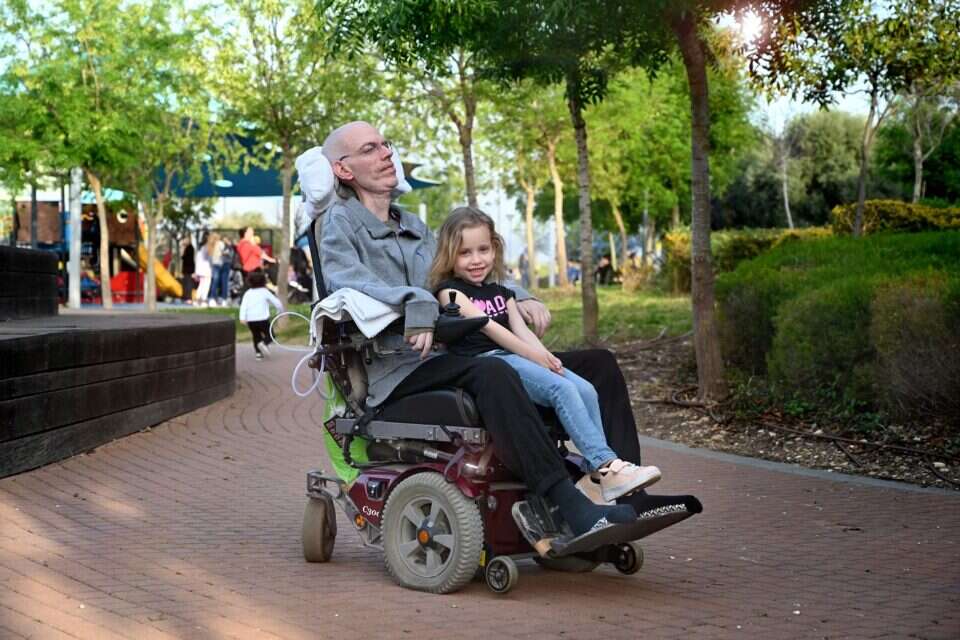
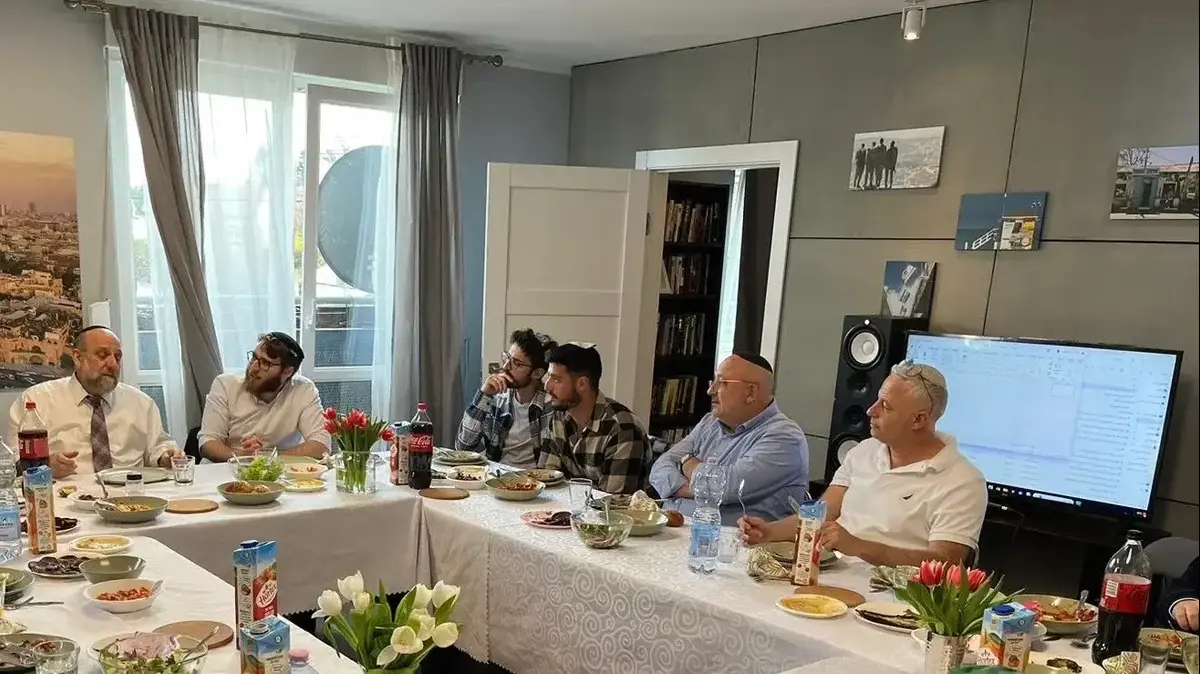

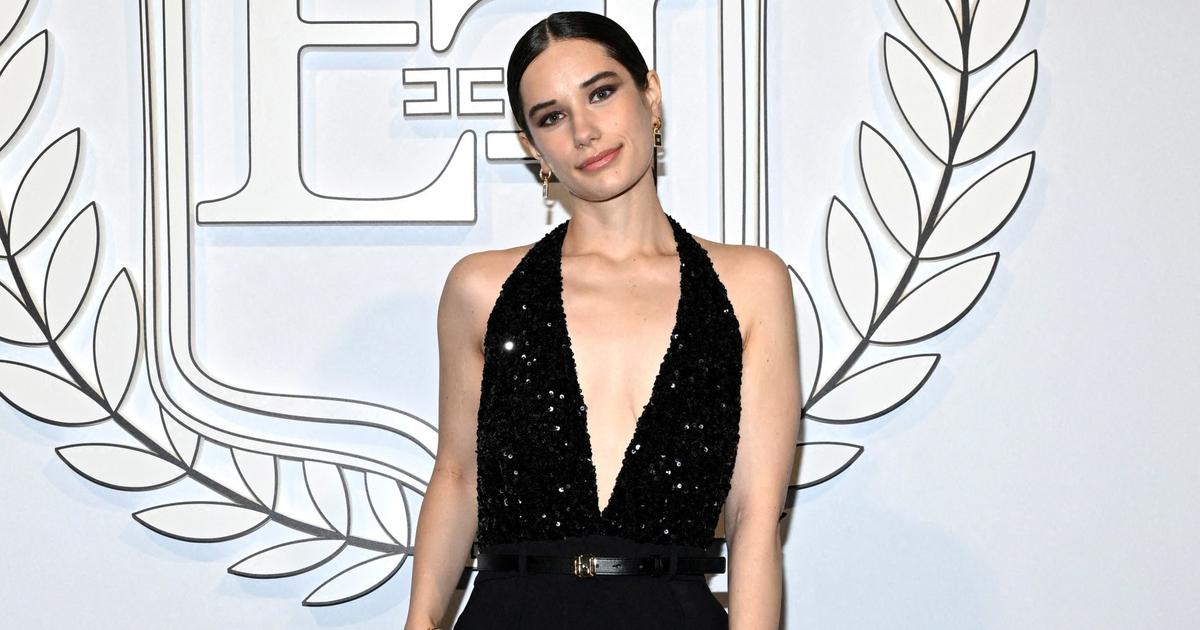
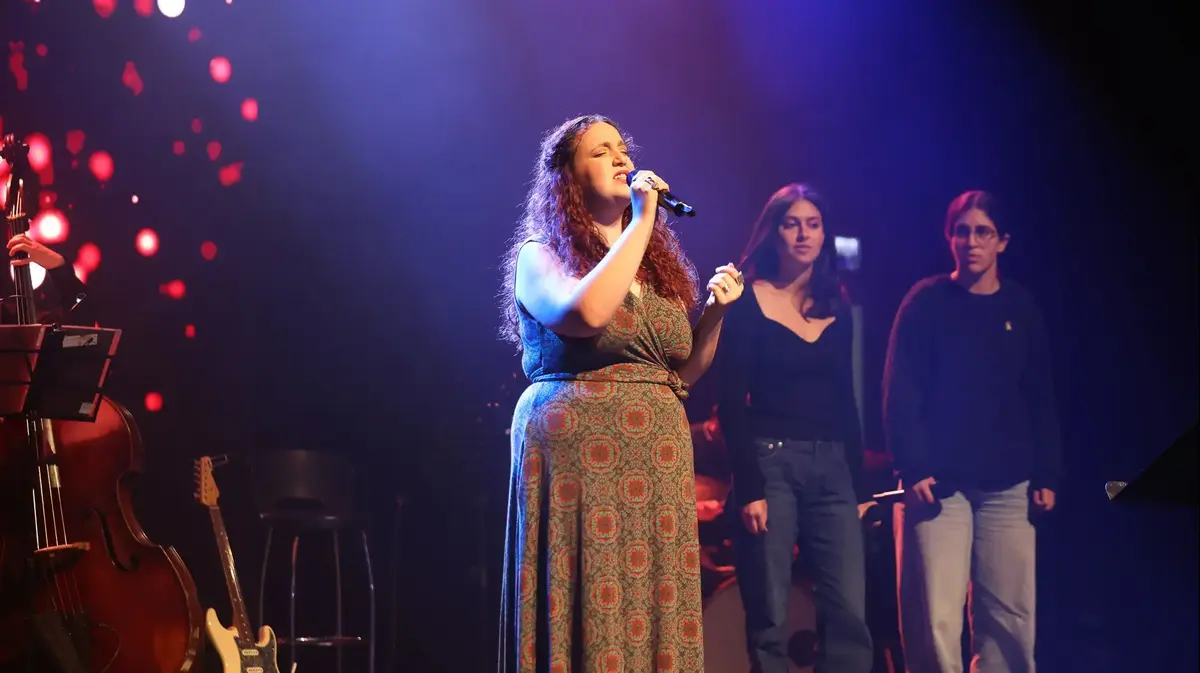
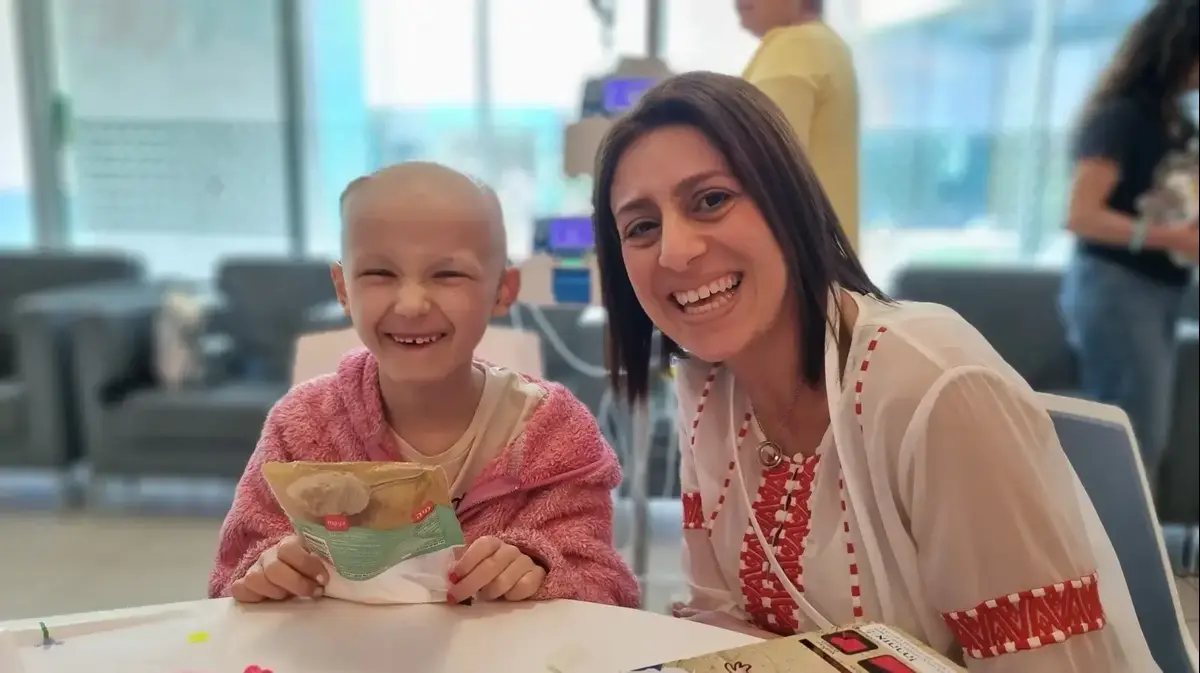
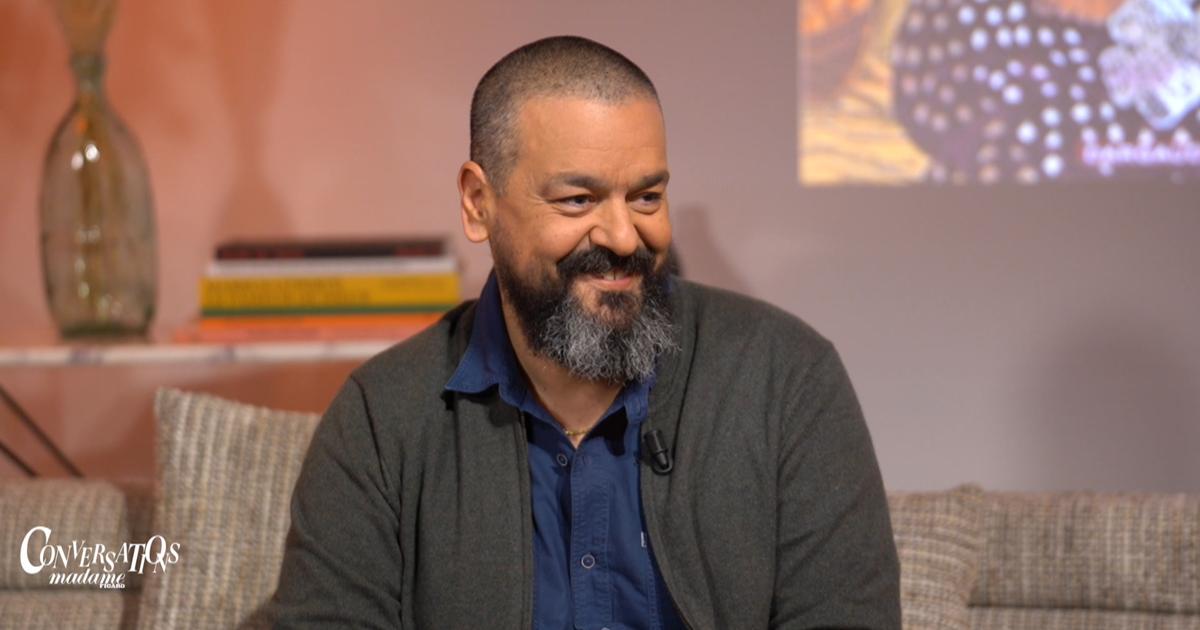
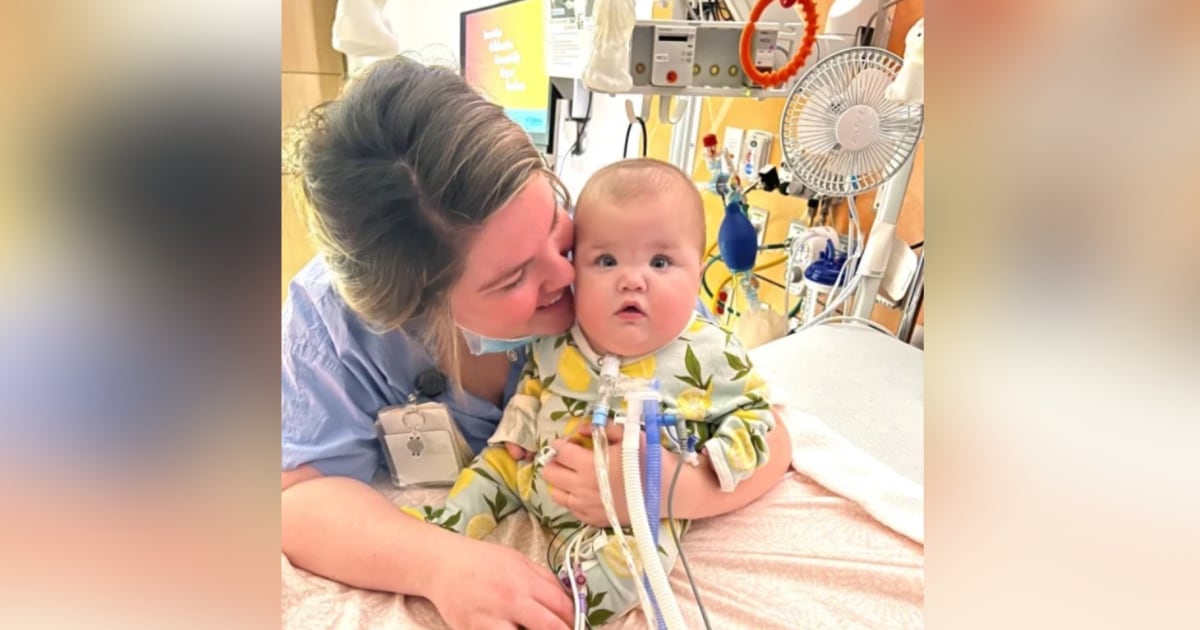
/cloudfront-eu-central-1.images.arcpublishing.com/prisa/VQFWN5BD4VECJMCZ5VOL675H2Q.jpg)